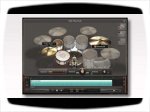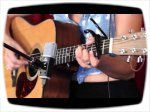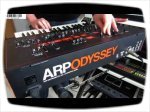Mac and Music News
| Apr 25 - 11:19 AM | Virtual Instrument > East West |
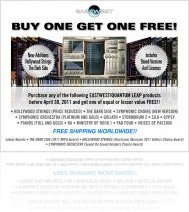 Promotion ends April 30th, 2011 at midnight USA-Pacific time.
Promotion ends April 30th, 2011 at midnight USA-Pacific time.
RULES & CONDITIONS
The purchased product "list price" is used to calculate the free product at the "equivalent list price or less". The FREE product cannot be the same as your purchased product. Purchased product must be activated in iLok.com account (new or existing) before FREE product license is placed in the same iLok account. iLok security key is required and is not included (purchase at soundsonline.com or soundsonline-europe.com). One iLok key holds all licenses. Allow additional shipping time during promotions.
| Apr 22 - 07:48 PM | Event |
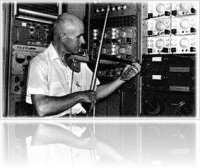 INformation from NAMM.org
INformation from NAMM.org
Max Matthews was working as an engineer at the famed Bell Laboratory in 1954 when he was asked to determine if the computer Bell was designing could create music. The landmark Music 2 and later Music 4 projects put the two concepts together as early as 1957-–the computer and music had a future and Max was there for the birth.
Max had moved on to musical programming when Don Buchla and Robert Moog created similar electronic music in the form of the synthesizer. As a Stanford University professor, Max worked with his close friend John Chowning for several decades on a number of programs including the technology used for Yamaha's DX7.
| Apr 22 - 04:36 PM | Virtual Instrument > Wave Alchemy |
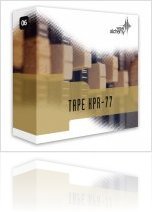 The KPR-77 was originally manufactured by Korg in the early 1980's and was advertised as a cheaper alternative to Roland's successful TR-606 drum machine. Surprisingly this quirky little analogue machine is capable of producing quite powerful drum sounds, we are especially fond of the t oms, snares and claps!
The KPR-77 was originally manufactured by Korg in the early 1980's and was advertised as a cheaper alternative to Roland's successful TR-606 drum machine. Surprisingly this quirky little analogue machine is capable of producing quite powerful drum sounds, we are especially fond of the t oms, snares and claps!
Tape KPR-77 contains three pre-mapped drum kit patches for use with Kontakt 2, 3, & 4 and Battery 3. Each kit makes use of extensive velocity layering, round robin sample playback and choke groups which in turn capture the quirkiness and expressiveness of the original unit.
| Apr 22 - 02:21 PM | Music Hardware > Roland |
 For portability sake, the C-200 features high-quality built-in speakers with Bass Reflex and a single 76-note keyboard, however it easily lets you simulate dual-manual performance via programmable keyboard split points and zones. For additional performance flexibility, an optional pedalboard can be added. The C-200 is the ideal instrument for classical music students, small choirs, and intimate churches, chapels, concert halls, and theatres.
For portability sake, the C-200 features high-quality built-in speakers with Bass Reflex and a single 76-note keyboard, however it easily lets you simulate dual-manual performance via programmable keyboard split points and zones. For additional performance flexibility, an optional pedalboard can be added. The C-200 is the ideal instrument for classical music students, small choirs, and intimate churches, chapels, concert halls, and theatres.
- Portable design with simple User Interface
- 76 keys for two manuals simulation as well as wide key range for the Fortepiano and Piano sounds
- Built-in stereo speaker system with Bass Reflex
- Pedalboard IN (PK-IN) to support an optional PK-series pedalboard (PK-5A, PK-7A, PK-25A)
- High-quality organ sounds with variations
- Dedicated buttons for Harpsichord, Fortepiano, Piano and Celesta sounds
- Internal Orchestral sounds for Pedal, Manual I and Manual II
- Four baroque pitches and five Temperaments support by easy buttons
- One-track recorder function for performance recording and evaluation
- USB Flash Memory connector to store performances
| Apr 22 - 12:11 PM | Audio Hardware > Alesis |
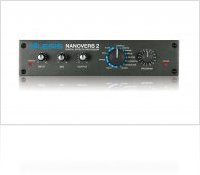 A solid effects box should give you more than just a few choices on a knob. NanoVerb 2 delivers the goods with 16 different program settings for each of its 16 effects giving you 256 unique effect algorithms.
A solid effects box should give you more than just a few choices on a knob. NanoVerb 2 delivers the goods with 16 different program settings for each of its 16 effects giving you 256 unique effect algorithms.
Simply turn to the effect you need, then dial through the program settings to find the one that fits your sound. In addition, we took a no-compromise approach to what you will hear when you plug in and choose a setting. NanoVerb 2's 52-bit DSP resolution ensures remarkable sonic quality that allows you to use it for any effects application from guitar to studio recording.









